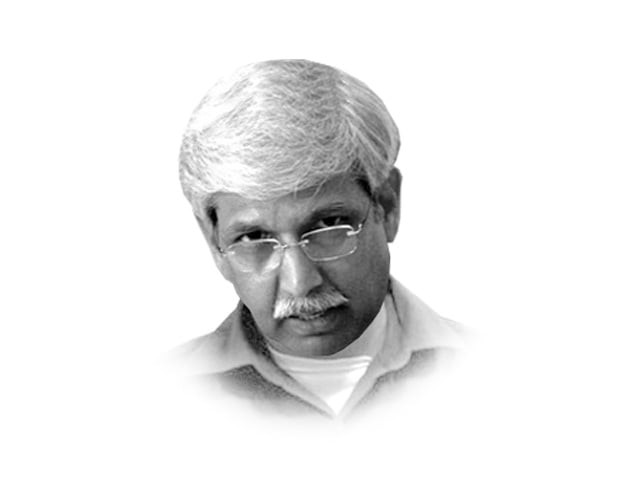For peace between India and Pakistan
One wonders if the weight of the India-Pakistan baggage ever touches the interlocutors when they meet, as in Thimphu.

There are significant changes in the conflict dynamics of both India and Pakistan that must push both to review their stance towards each other. The centrality that drives the mindset on both sides is the enemy status that each side maintains of the other. Just as the Pakistani military remains India-centric, the Indian military, too, retains Pakistan as the prime threat. Any improvement of relations between the two must, therefore, begin and finish with eliminating all intervening factors that make these two nations inimical. That is a tall order; and that is why improvement will come only in increments. That is why it is necessary to plod on, bit by bit, if improvement is indeed intended. Thimphu, both one and two, have only been jittered starts, at best.
Begin with terrorism, and accept the fact that Pakistan may not have been too ingenious in employing some of its manifestations in pursuit of shaping an environment that links up Kashmir. Many Indians are quick to also point at Kargil and Mumbai. They are right on Kargil, but preconception denies them the reason to recognise that the heinous hand in Mumbai was meant to derail Pakistan from the war against terror. It will need an equally smart Indian to accept that Pakistan alone does not hold propriety over non-state actors. Sri Lanka continues to smarten from a thirty-year LTTE-imposed war, while the Samjhota blast is yet to unfurl all hidden facets of Indian culpability. Neither manipulator of the irregular war has benefited from such enactments. Conclusion: Give it up as a bad joke — it can also deliver dastardly consequences.
Kashmir, from 1989 onwards, was an attempt to bring it to the world focus as the root cause of why India and Pakistan were still struggling in their relationship. It failed as a ploy; that is why someone needed to do Kargil, which was farcical. That, however, does not change the status of Kashmir. Minus Pakistan, Kashmir, even today, remains a living nightmare for India. It received a none-too-helpful buoyancy post-Mumbai, for entrenched positions re-emerged as India has tried to expropriate maximum political benefit of a toxic situation. It is time to get back to the drawing boards and give peace a chance. The Thimphu spirit just might be it.
Quite clearly, a lot has happened via the backchannel and the composite dialogue. Queer issues of ownership or nomenclature must not be allowed to detract from the gains made. If India wishes for the backchannel to revive, Pakistan must concur. That remains the only sensible thing to do. Plus, Kashmir is no more a Pakistan-India territorial issue, it has a very large human aspect to it, with tens of thousands Kashmiri lives lost. India wishes to link the issue of Siachen to Kashmir, extending the quixotic circus.
Before Thimphu, the Indian foreign secretary suggested progress on people-to-people contact, Sir Creek and opportunities of trade. I would say, take it.
Talks are good. Sustain those by making them “uninterrupted and uninterruptible”, in the words of Mani Shankar Iyer. Listen to the wise man.
Published in The Express Tribune, February 16th, 2011.














COMMENTS
Comments are moderated and generally will be posted if they are on-topic and not abusive.
For more information, please see our Comments FAQ